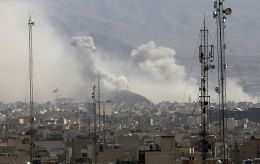'We won't give Russia reason to accuse us of sabotaging peace process,' Head of Ukraine's Presidential Office
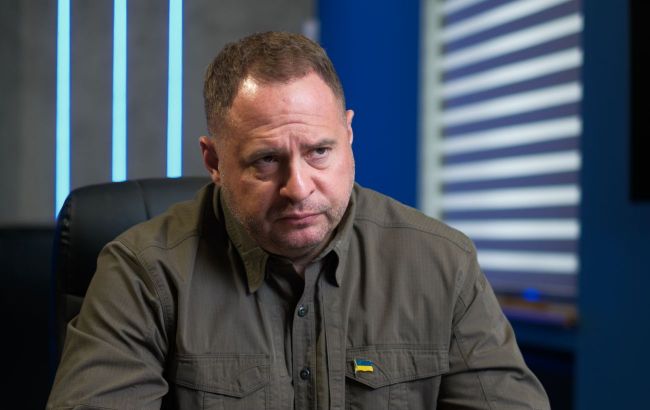 Head of Ukraine's Presidential Office Andriy Yermak (all photos: Vitalii Nosach/RBC-Ukraine)
Head of Ukraine's Presidential Office Andriy Yermak (all photos: Vitalii Nosach/RBC-Ukraine)
In a comprehensive interview with the Head of the Presidential Office Andriy Yermak, RBC-Ukraine discusses talks in Istanbul, the ceasefire, various peace plans, relations with Donald Trump, sanctions against Russia, and other issues.
Takeaways
- Is Ukraine willing to negotiate without a ceasefire?
- Is the Ukrainian government ready to talk in Istanbul with someone other than Putin?
- Is Zelenskyy's peace formula still relevant?
- Is the United States ready to monitor a ceasefire if it is achieved?
The last few days have been eventful even by current Ukrainian standards. First, the leaders of the Coalition of the Willing gathered in Kyiv and demanded that Russia agree to a full ceasefire starting May 12, with no conditions.
Not interested in a ceasefire, Vladimir Putin tried to turn the situation to his advantage: he refused the ceasefire but proposed holding talks in Istanbul on May 15. Ukraine and its European allies rejected this approach: ceasefire first, then talks.
But, predictably, US President Donald Trump intervened, calling on Ukraine to still fly to Istanbul and talk to the Russians. However, it was Ukrainian President Volodymyr Zelenskyy who flipped the situation back against the Kremlin by offering Putin a challenge: announce a ceasefire and then come to Istanbul for a personal meeting.
In doing so, it was Putin who found himself in a bind: rushing to Türkiye himself for a meeting initiated by Zelenskyy is inconvenient. But to ignore the talks in Istanbul - his own proposal - would again show, especially to Trump, that Russia is the one not interested in peace.
Asked by RBC-Ukraine whether the Ukrainian side is ready to talk with anyone other than Putin, Head of the Presidential Office Andriy Yermak replies: "Do you know anyone else in Russia who makes decisions of this level and can ensure they are carried out?"
Still, RBC-Ukraine spoke with Yermak not only about recent developments, but also broader issues: Ukraine-US relations, ceasefire monitoring, security guarantees, red lines, the threat of a frozen conflict, and more.
— Putin is trying to stall for time and hijack the US agenda by dragging Ukraine into a format favorable to him. Will Ukraine agree to talks without a ceasefire if such an approach from the Kremlin gains US support?
— The key word here is "if." What such a format means for Ukraine is well known. We've been through it before. But there's another side to this: what would that format mean for the US and Europe, especially in terms of regional security?
Russia will try to lift sanctions by using the negotiation process as a cover. This format is driven by a desire to mislead everyone. Do they want to be misled in Washington? Do Europeans want that? Definitely not. That's why our approach with partners is unified: ceasefire first, then negotiations. That's confirmed by all recent statements on both sides of the Atlantic.
— So besides Putin, we won't talk to anyone else from the Russian side?
— Do you know anyone else in Russia who makes decisions of this level and can ensure they are carried out? Of course, he'll delegate technical and preparatory stages, but we understand who ultimately holds the reins.
— Putin has de facto refused a ceasefire starting May 12 and instead proposed talks in Istanbul. What will Ukraine's and its Western allies' reaction be? Will the announced sanctions against the Russian Federation be imposed? Will the Ukrainian delegation go to Istanbul?
— I think this is nothing new for Ukrainians. We've been negotiating with the aggressor for years, and we know how they stall. Ukraine wants a just and lasting peace above all. And we say this directly at every level. That's why we constantly emphasize that Ukraine is open to any negotiation format. We won't give Russia any reason to accuse us of sabotaging the peace process.
And we will continue to insist: if Russia is truly ready for talks, it must accept the US and European partners' proposal for a comprehensive 30-day ceasefire. This position is clearly stated, and we have reiterated it many times in conversations with our partners.
I think you've already seen the President's (Volodymyr Zelenskyy - ed.) tweet. That's how strong leaders act. Today, the ball is in Moscow's court. If the Kremlin is truly interested in peace, it knows what to do. Ukraine wants peace, but not a simulation of peace.
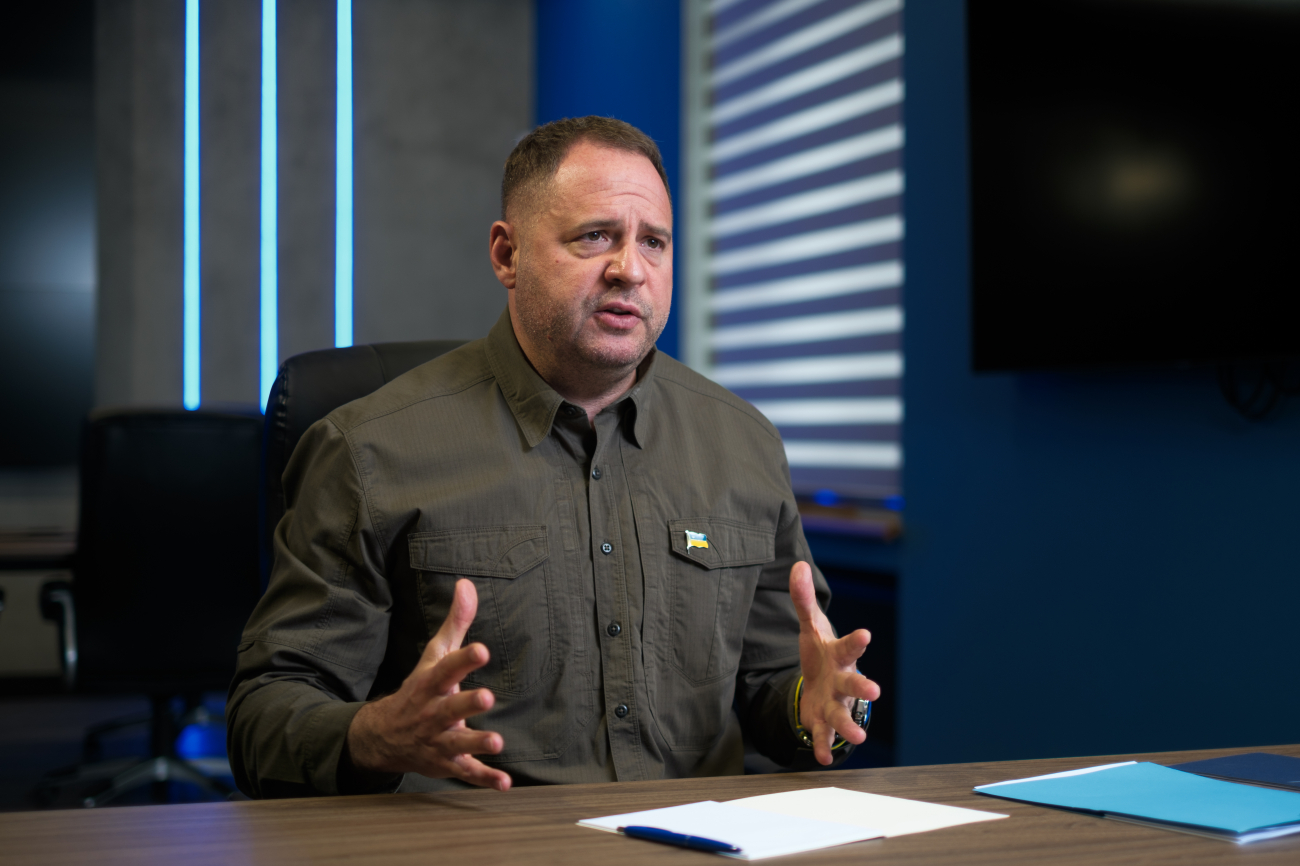
— Let's talk about partners. After the talks between Volodymyr Zelenskyy and Donald Trump at the Vatican, there were several notable diplomatic developments: an online meeting of National Security Advisors (NSAs), a phone call with representatives of the US negotiating team, and another conversation between the Presidents of Ukraine and the US. What should be the next steps: who should call whom, or meet whom?
— Consultations are happening almost every day. What you just mentioned - the online NSA format - was a series of online consultations, and this process is ongoing daily.
Of course, top-level contacts don't happen daily, but they've become regular and frequent. And after the historic meeting at the Vatican, there was a phone call, which was very positive and very constructive.
The two presidents already communicate in a format where they don't need much time for formalities; they talk about very specific things.
— Like what, for example?
— There are several. But certainly, the main one is the steps needed to end the war with a just and long-term peace.
The presidents also spoke about the historic ratification of the Economic Partnership Agreement, 338 votes, they congratulated each other on this historic deal, which lays the foundation for a partnership-based economic cooperation not only now, during the war, but also in the future.
And, of course, both sides see this agreement as one element of a broader security guarantee system for Ukraine.
— We'll talk more about that separately.
— I can say that communication is happening at various levels. Andrii Sybiha (Ukraine's Foreign Minister - ed.) communicates with Secretary Rubio. Now Secretary Rubio has become my counterpart too, given that he is acting as National Security Advisor. We also regularly communicate with General Kellogg, with Steve Witkoff, and with other administration and congressional representatives.
It is very important that today a bill on new sanctions has been prepared, authored by Lindsey Graham. These sanctions will be applied immediately when it becomes entirely clear that Russia has definitively rejected any proposals for a ceasefire.
There is a concrete proposal for a 30-day ceasefire on the table now, which was originally put forward by our American partners during negotiations in Jeddah and supported by Ukraine.
— What next steps do we expect from the Americans?
— Our position is that we need a just and long-term peace, ensured by security guarantees.
Therefore, we continue to insist that the first step for starting any negotiations must be a clearly monitored 30-day ceasefire. We believe that the leadership should be with the Americans, who have all the necessary capabilities. With European participation, of course.
We believe Europe should be involved at every stage because Ukraine is part of Europe, a future EU member. After that, the format of negotiations can be agreed upon.
The full list of issues necessary to end the war will be the subject of these negotiations. Ukraine must be strong in these talks. Ukraine will absolutely not allow anyone to talk to it in the language of ultimatums. The basis of these negotiations must be international law, the UN Charter. Accordingly, Ukraine takes a proactive, clear position.
If Russia agrees, then we move to the next phase, which is also clear and for which our partners are ready. If not, then Russia must face pressure through sanctions and other concrete and clear actions. Because we do not trust Russia. We believe they only understand the language of strength.
There are no questions for Ukraine, so right now, the issue lies with Russia's position.
— And the US understands that, too?
— Yes, I believe they do. And if you look at public messaging in recent days, it has also changed - clear messages were voiced.
There are no questions for Ukraine. As for Russia, it must either accept the terms and show with concrete steps that it has the political will to stop playing games, stop stalling, stop lying, and is truly ready to move toward peace - a just, long-term peace, and so on.
A ceasefire isn't to create a nice photo op on Red Square. These are more fundamental things.
— Everyone saw the draft peace plans published, including by Reuters. The document, which Reuters labeled as American proposals, supposedly includes US de jure recognition of Crimea's occupation and de facto acceptance of parts of the Donetsk, Luhansk, Kherson, and Zaporizhzhia regions, etc. Is that really the American vision, or did the Americans simply pass on the Russian "wishlist" points?
— The Ukrainian side has not received any so-called American proposals. During the consultations in Paris, in London, and online, there is an exchange of certain thoughts and ideas.
We are grateful to President Trump and his administration for their efforts to stop the war. President Trump has taken on the mission of a person who wants to do everything to end this war. And whether personally or via his administration members, he's holding consultations with both Ukraine and Russia.
The American position is to end this war. But everything that appears in the media may come from either side. Americans are not parties to this war. They want it to end.
Everything that appears in the media from time to time comes from one of two sides: the side that started the aggression, and the side defending itself. Commenting on what the aggressor puts out, I believe, is a thankless task. They often publish completely unfounded claims.
There is a clear and consistent Ukrainian position. With red lines. And these red lines are not just "wishlist" points.
In all the documents Ukraine has presented — from President Zelenskyy's Peace Formula to the victory plan, to the resilience strategy — they are 100% based on things every country in the world claims to respect.
Let's be realistic: we are at war. And this war will end sooner or later. Every war ends in negotiations.
Negotiations exist for the purpose of discussing everything that must be resolved to end the war. I'd focus more on Ukraine's absolutely clear, consistent position, on President Zelenskyy's position, which remains honest, open, and principled.
And I'd highlight the position of our partners. Some have held the same stance for the past three years. Some have shifted - but again, that's the work of diplomats and politicians: to defend their interests, which is what we are doing 24/7.
— Why did I ask about the Russian “wishlist”? Recently US Vice President JD Vance said the Russians have a so-called peace plan, which includes the occupation of all four regions plus Crimea. Of course, a peace plan by aggressors sounds absurd, but still, are you aware of such a plan?
— The aggression itself began with Russia's goal to occupy our country. Presumably, they called that a plan too. So honestly, I don't see any value in discussing this. The real issue is: what are Ukraine’s goals today? And Ukraine's goals are solely tied to our national interests.
If we take a few steps back, I don't want us to forget President Zelenskyy's Peace Formula. But I'd like to explain what it is and how to view it today.
When we talk about ending the war, the question arises: what needs to be done? The full range of issues, the entire list of what must be achieved to have the right to say, in every sense, legal and moral, that the war is over and we can think about post-war relations.
— With the aggressors?
— Yes. The Peace Formula outlines everything needed to make that happen.
Some may say we're dreaming. But no, these are absolute realities. Why? Because you always need to have a clear vision of your goal. The Peace Formula sets that goal. The second question is how to achieve it.
— Has the goal changed?
— No. Achieving this goal involves several stages.
The war has been going on for 11 years. Can the documents signed under other Presidents be called ones that fully reflect the interests of our country? No. For example, based on one simple reason: why is there nothing about Crimea in them?
The point is that the Peace Formula is a complete set of actions that need to be taken to say that the war is over. And then we have to deal with the realities that exist.
The formula is a strategy. What is happening now is tactics.
And what we are talking about today fully aligns with the results of the first summit in Bürgenstock. We talked there about a ceasefire, though it mainly concerned the energy sector.
Likewise, we're talking about how important the humanitarian track is for us. That's prisoner exchanges, returning civilians, and returning our children. For us, this is a very important issue, because these are our people.
That's why, in principle, there is no difference between our position now and a year or two ago. Yes, it adapts to current realities, but we clearly understand what our strategic goal is.
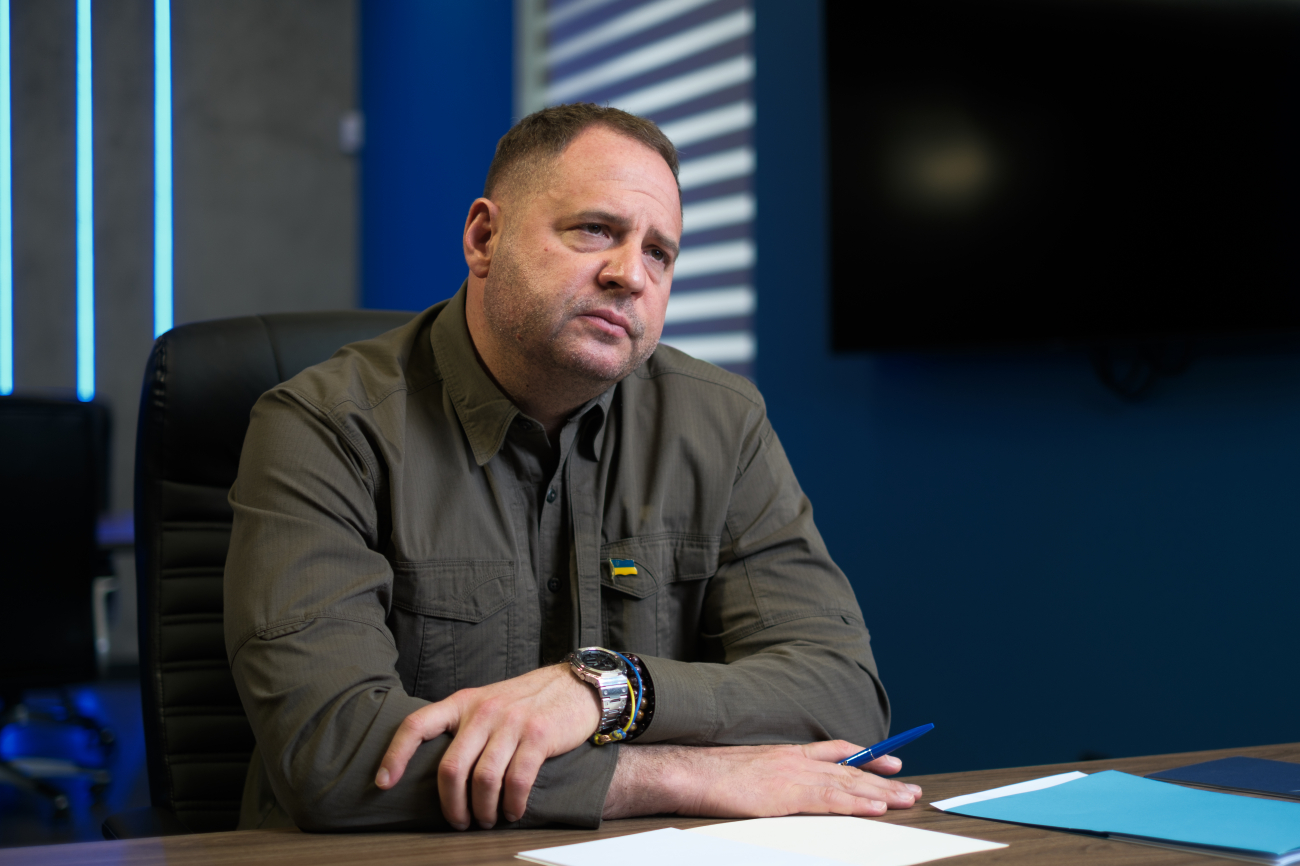
— You mentioned previous agreements, Minsk agreements, which were far from ideal. But isn't there a risk that now, in the end, we'll have to sign even worse documents, in the sense that back then the aggressor's troops de facto occupied one territory, but now they clearly control a much larger area?
— The most accurate judgment will be made by history. Back then, we were Ukrainian citizens without access to full information. I believe that today, Ukrainian citizens know much more about what's really going on.
As for those agreements, we still don't know many of the behind-the-scenes things, which we're just learning during negotiations with partners now: who asked whom to get signatures on certain documents, and so on.
Any strategy is correct only when it lays out the full goal that you want to achieve. I believe that President Zelenskyy's Peace Formula outlines the complete strategy and everything that must be done to end the war.
So it remains relevant, absolutely relevant. But the reality is that it's a long path. It has to start somewhere, and today it's absolutely clear that it must begin with a ceasefire.
We're talking about 30 days. We don't understand the logic behind a 3-day or 10-day ceasefire, etc. But 30 days is a timeframe during which a humanitarian track can be implemented, delegations can be formed, and negotiations can begin, first at the technical level, then moving forward.
We've had many examples of short-term ceasefires, even recently. And we know that a monitoring mechanism is extremely important. We've come a long way, and we know exactly which mechanisms work and which don't. We understand perfectly well, and we say this openly, that only our American partners have the necessary capabilities.
Yes, they can bring in others, but the leadership should be with the US because they really can monitor everything with their satellites. And it's extremely important to anticipate actions in the event of a ceasefire violation. If there's no clear mechanism in place, it's always very difficult to determine what actually happened, who violated it, how it was violated, and so on.
— If the ceasefire starts, the US won't be able to immediately launch this entire monitoring mechanism, even if they want to, right?
— That's exactly why we say today that if a ceasefire is announced politically, then the teams must immediately get to work finalizing everything.
But in any case, the first step must be a political declaration announcing the ceasefire. It can't function 100% from the first minute. But when there is political will and it is documented, we can move on to step two — holding direct negotiations to launch the mechanism.
In parallel, we can talk about shaping the agenda, defining the framework, outlining the topics of future potential negotiations, and so on.
— Is the US ready to handle ceasefire monitoring?
— I can't say that they've said "yes, we are ready." But they haven't refused, and that's already good. Plus, there are other countries ready to participate.
Do we believe that Russia will agree to a ceasefire and not simply stall for time? No, we don't. But we must be ready to start a genuine peace process.
— There was a sharp change in the White House's tone on Ukraine after the meeting in the Vatican. It lasted less than 15 minutes — two people physically can't discuss much in that time. So what exactly was said that made us see a completely different President Trump?
— In life and in politics, one brief meeting — if it's one-on-one and very honest — can change a lot. It didn't happen entirely spontaneously; the meeting was planned, but it was planned to take place after the mass. And now I understand that if things had gone according to that plan, it would have been a different kind of meeting. And it's not a given it would’ve happened the way it did.
I believed from the beginning that changes in the relationship would happen after the presidents could speak face-to-face. Truly face-to-face.
I didn't hear the conversation. I only know what the President told me afterward. It was a meeting they agreed would mostly remain between them. I think they understood each other and felt the honesty of intent.
The sincerity of our President in his fight, in Ukraine's fight, in the desire to end this war with a just peace, that's what underpins the struggle of the Ukrainian nation. I believe that's the key thing President Trump needed to feel. And for our President, I think it was very important to feel President Trump's genuine desire to end the war.
— The White House still says that the US could walk away from the talks if they believe the negotiations have hit a dead end. Do you think that's actually possible? Do we have a plan B just in case? Because walking away can mean different things: stopping aid entirely, or continuing aid but not participating as a mediator.
— I truly believe that President Trump and the United States don't want to be part of a process that doesn't have a successful outcome. And I can say for sure that Ukraine will never give America such an impression. If they ever get that feeling, it will only be due to the Russian Federation. And if that happens, I believe America will stand with Ukraine.
Recent events, like the Economic Partnership Agreement signed and ratified by a constitutional majority, show that we still have a much better chance of being partners and friends with the US.
— When might the Economic Partnership Agreement go into effect?
— In the coming weeks.
— Is it accurate to say that this agreement ties us closely to the Americans?
— We've found a way to be partners, something Ukraine has been working toward for a very long time. That is, not just a country the US supports in one way or another, but a country that is actually interesting to the US, with long-term potential. It was a difficult, lengthy process, and I'd like to acknowledge the team led by First Deputy Prime Minister Yuliia Svyrydenko. They did a great job.
This is also one of the elements of the future security guarantees framework, because American money, American investment — that's a very serious element of security guarantees.
— What truly tough measures could the US take against Russia? Ones that would genuinely hurt the aggressors?
— I know the details of a new sanctions package that could be implemented. It's very tough, and if enacted, it could be coordinated with similar packages from Europe, the UK, Canada, etc., and it will really hurt. The Russian economy is not in a state to endure even more sanctions. New sanctions will amplify all existing effects.
— Ukraine has always resisted freezing the war because a frozen conflict is not a solution — it's a time bomb that will eventually explode. But if two warring sides (let's forget for a moment that it’s us and the Russians, just speaking theoretically) stop along a line of demarcation, and fighting ends, yet each side considers some territory to be theirs — isn't that literally the textbook definition of a frozen conflict? Am I right?
— Again, it comes back to strategy. If your strategy is honest, and you honestly tell your people, tell the world that your strategy is to reclaim all your territories, your strategy is to end the war in every sense - then you will act accordingly and aim to end the war in a way that minimizes the risk of a prolonged frozen conflict.
If you sign something and try to justify it with a difficult situation, if you're not honest with your people, then that's exactly what leads to a frozen conflict. You're absolutely right, it's a time bomb. Why? Because life on Earth doesn't end with us. A new generation may come along that simply refuses to accept the loss of territories. And they will seek revenge in 10, 20, 30 years, as has happened more than once in world history. That's why it's so important to be honest. Honest with your people above all, and honest with the world.
Frozen conflicts don't happen where politicians genuinely don't want to freeze the conflict. If you don't want that, you'll look for ways to avoid it. Yes, it may be a long process, but at the end of it, there must be an honest goal.
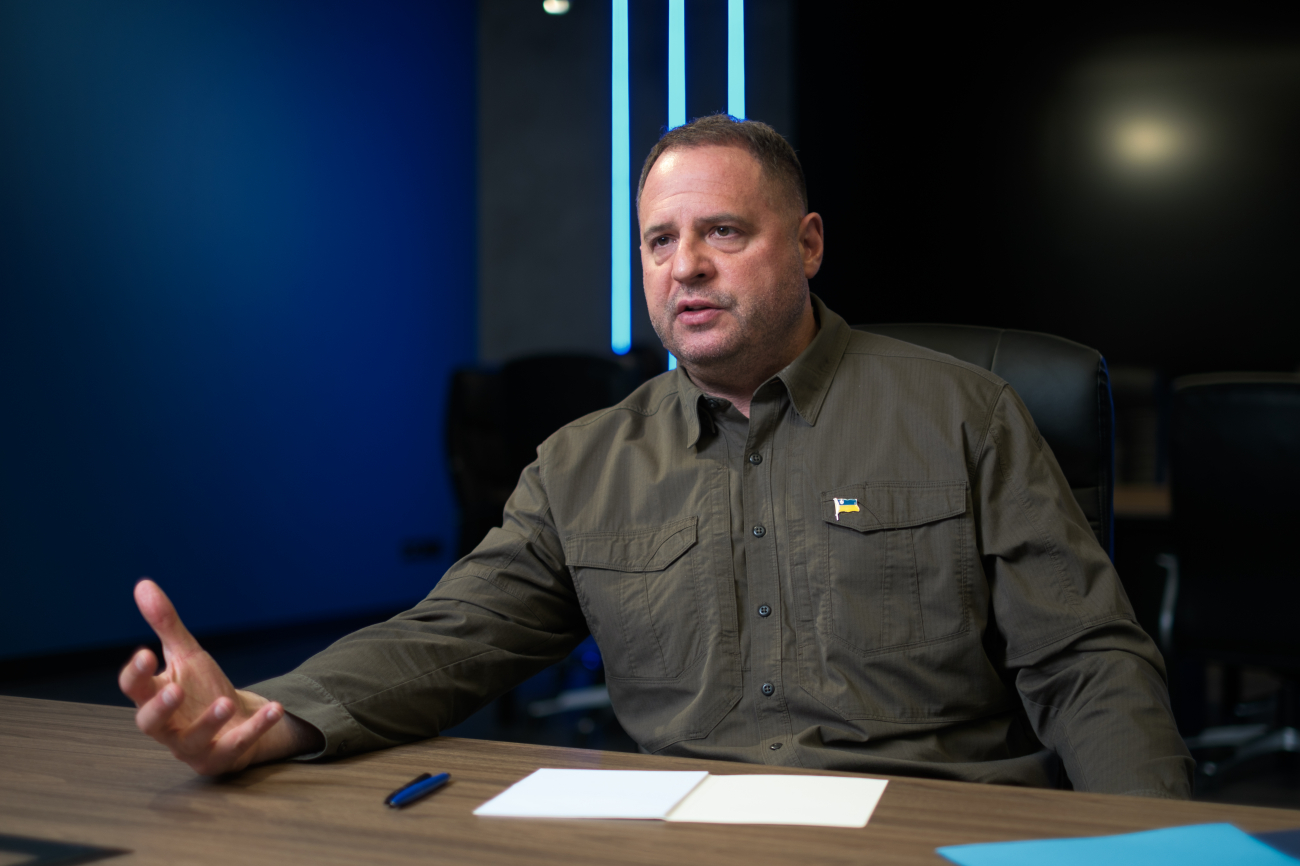
— Are you personally satisfied with the level of honesty and transparency in this entire process? There are very different opinions on this. People see someone met with someone, had a phone call, traveled as part of a delegation, and a week later they read in Bloomberg or WSJ: this was discussed, Ukraine proposed that, agreed to this, and so on.
— Why do you assume that what Ukrainian officials say today could theoretically be questioned, but what's written in some outlet is taken at face value?
— Not at all. A lot of nonsense gets written, too.
— I can tell you this: today, the main diplomat and leader of our country is President Zelenskyy. He is definitely an honest person, and he definitely conducts an honest policy with everyone. And yes, when it comes to the honesty of our leader, I respect it greatly and believe that this is a global trend today, one he himself set. Thanks to him, people now understand what it means to be a strong, honest politician. I believe this is a winning strategy today.
As for what’s said and written, yes, some conversations and consultations can't be made public. But that's why they are consultations — no decisions are made at them, no documents are signed. Through this process, our partners better understand our position and the manipulations coming from Russia.
If every step becomes public knowledge, unfortunately, we'll never reach a result. Sometimes, consultations are closed not because Ukraine wants them to be, but because partners request it, and their wishes must be respected.
So in this case, I believe we live in such an open society, and Ukraine is such a democratic and transparent country, that it's impossible to hide anything.
— Previously, the Ukrainian leadership repeatedly said it would not agree to a ceasefire without firm security guarantees. But now Ukraine is saying the opposite — that it's ready for a prolonged ceasefire, even though we don't have firm security guarantees. Why was that red line slightly shifted?
— In this case, we're talking about a ceasefire as the first stage. We're not saying that a ceasefire will happen, and the next day we sign something with someone.
That's the first thing. Second, work on security guarantees has not stopped during this entire period. Today, a certain system is already taking shape. For example, Ukraine has received status in the JEF, the Joint Expeditionary Force of ten Northern European countries. We have a Coalition of the Willing. The American side has repeatedly stated publicly that it is ready for certain forms of security guarantees. Today, many options are on the table.
So it's not like before when security guarantee was just a phrase and no one knew what it meant. Today, there is something to choose from, so to speak, and something to discuss. That's why the President and the team now have a clear understanding of logical steps.
Again, our position is clear, and our partners' positions are clear. What's not entirely clear is Russia's position. We don't need any security guarantees from Russia. So they are, in principle, not needed for discussion.
But unfortunately, it's impossible to cease fire and move toward ending the war without Russia's participation. Sometimes we have different views on this with certain countries. All countries in the world today, regardless of their relationships with us or with the Russians, want this war to end.
The other issue is that some are still living under the illusion that this can be achieved through compromise with Russia. We, along with most of our partners, believe that the path to peace must go through strength because Russia respects the language of force. And if it sees a strong opponent or interlocutor across the table, call it what you will, it starts thinking and talking in a completely different way.
If they don't see you as strong, they believe they have the right to take something from you, to impose, to dictate terms, etc. In other words, to use methods that are unacceptable to us Ukrainians — and we've been proving that for over three years now.
Ukrainians are showing in practice how to talk to Russia so that it makes so-called gestures of goodwill, which in reality are retreats. Ukrainians demonstrate this through resistance on the frontline, resilience on the home front, and activity on the diplomatic front. And we are showing our partners that only through strength and pressure can you get concessions from Russia.

